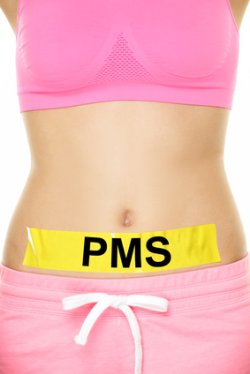afterLoad (456.73KB) (649μs)
afterInitialise (1.28MB) (15.22ms)
afterRoute (856.95KB) (7.34ms)
beforeRenderComponent com_content (36.71KB) (1.39ms)
Before Access::preloadComponents (all components) (69.88KB) (1.5ms)
After Access::preloadComponents (all components) (98.07KB) (1.49ms)
Before Access::preloadPermissions (com_content) (1.6KB) (19μs)
After Access::preloadPermissions (com_content) (3.29MB) (8.95ms)
Before Access::getAssetRules (id:62 name:com_content.category.20) (130.65KB) (118μs)
After Access::getAssetRules (id:62 name:com_content.category.20) (7.38KB) (58μs)
Before Access::getAssetRules (id:8 name:com_content) (51.77KB) (11.21ms)
After Access::getAssetRules (id:8 name:com_content) (6.17KB) (30μs)
afterRenderComponent com_content (1.36MB) (62.91ms)
afterDispatch (32.63KB) (2.03ms)
beforeRenderRawModule mod_articles_category (READ MORE...) (350.81KB) (4.75ms)
afterRenderRawModule mod_articles_category (READ MORE...) (84.8KB) (37.09ms)
beforeRenderRawModule mod_tags_popular (Search) (4.81KB) (34μs)
afterRenderRawModule mod_tags_popular (Search) (6.55KB) (21.25ms)
beforeRenderRawModule mod_custom (BOOST YOUR IMMUNE DEFENSE) (960B) (30μs)
afterRenderRawModule mod_custom (BOOST YOUR IMMUNE DEFENSE) (4.2KB) (214μs)
beforeRenderRawModule mod_custom (Are you taking supplements) (736B) (14μs)
afterRenderRawModule mod_custom (Are you taking supplements) (1.03KB) (26μs)
beforeRenderRawModule mod_articles_category (Get additionel and more detailed knowledge about) (8.41KB) (20μs)
afterRenderRawModule mod_articles_category (Get additionel and more detailed knowledge about) (44.43KB) (2.9ms)
beforeRenderRawModule mod_custom (Antiaging) (6.97KB) (28μs)
afterRenderRawModule mod_custom (Antiaging) (1KB) (46μs)
beforeRenderRawModule mod_custom (Exercise) (720B) (12μs)
afterRenderRawModule mod_custom (Exercise) (1.02KB) (24μs)
beforeRenderRawModule mod_custom (Check this before you buy a Q10 product) (752B) (10μs)
afterRenderRawModule mod_custom (Check this before you buy a Q10 product) (944B) (20μs)
beforeRenderModule mod_articles_category (READ MORE...) (267.89KB) (2.26ms)
afterRenderModule mod_articles_category (READ MORE...) (1.25KB) (60μs)
beforeRenderModule mod_tags_popular (Search) (5.17KB) (15μs)
afterRenderModule mod_tags_popular (Search) (2.52KB) (25μs)
beforeRenderModule mod_custom (BOOST YOUR IMMUNE DEFENSE) (1.31KB) (12μs)
afterRenderModule mod_custom (BOOST YOUR IMMUNE DEFENSE) (1.28KB) (21μs)
beforeRenderModule mod_custom (Are you taking supplements) (352B) (9μs)
afterRenderModule mod_custom (Are you taking supplements) (1.28KB) (20μs)
beforeRenderModule mod_articles_category (Get additionel and more detailed knowledge about) (8.03KB) (16μs)
afterRenderModule mod_articles_category (Get additionel and more detailed knowledge about) (1.31KB) (19μs)
beforeRenderModule mod_custom (Antiaging) (7.33KB) (10μs)
afterRenderModule mod_custom (Antiaging) (1.27KB) (19μs)
beforeRenderModule mod_custom (Exercise) (336B) (9μs)
afterRenderModule mod_custom (Exercise) (1.25KB) (19μs)
beforeRenderModule mod_custom (Check this before you buy a Q10 product) (352B) (9μs)
afterRenderModule mod_custom (Check this before you buy a Q10 product) (1.28KB) (18μs)
beforeRenderRawModule mod_menu (Main menu-US) (28.53KB) (528μs)
afterRenderRawModule mod_menu (Main menu-US) (157.05KB) (1.44ms)
beforeRenderModule mod_menu (Main menu-US) (720B) (5μs)
afterRenderModule mod_menu (Main menu-US) (4.36KB) (52μs)
beforeRenderRawModule mod_languages (Sprogskift) (3.44KB) (17μs)
afterRenderRawModule mod_languages (Sprogskift) (29.88KB) (1.58ms)
beforeRenderModule mod_languages (Sprogskift) (720B) (6μs)
afterRenderModule mod_languages (Sprogskift) (5.31KB) (23μs)
beforeRenderRawModule mod_finder () (6.34KB) (12μs)
afterRenderRawModule mod_finder () (154.54KB) (2.21ms)
beforeRenderModule mod_finder () (704B) (5μs)
afterRenderModule mod_finder () (3.29KB) (35μs)
beforeRenderRawModule mod_custom () (6.62KB) (142μs)
afterRenderRawModule mod_custom () (90.55KB) (895μs)
beforeRenderModule mod_custom () (704B) (6μs)
afterRenderModule mod_custom () (1.23KB) (49μs)
beforeRenderRawModule mod_menu (Main menu-US) (5.07KB) (108μs)
afterRenderRawModule mod_menu (Main menu-US) (5.8KB) (661μs)
beforeRenderModule mod_menu (Main menu-US) (720B) (4μs)
afterRenderModule mod_menu (Main menu-US) (3.75KB) (42μs)
beforeRenderRawModule mod_languages (Sprogskift Mobil) (912B) (17μs)
afterRenderRawModule mod_languages (Sprogskift Mobil) (3.89KB) (675μs)
beforeRenderModule mod_languages (Sprogskift Mobil) (720B) (3μs)
afterRenderModule mod_languages (Sprogskift Mobil) (1.27KB) (29μs)
beforeRenderRawModule mod_finder () (2.3KB) (9μs)
afterRenderRawModule mod_finder () (6.25KB) (714μs)
beforeRenderModule mod_finder () (704B) (5μs)
afterRenderModule mod_finder () (1.23KB) (46μs)
beforeRenderRawModule mod_custom () (8.66KB) (177μs)
afterRenderRawModule mod_custom () (904B) (150μs)
beforeRenderModule mod_custom () (704B) (3μs)
afterRenderModule mod_custom () (2.43KB) (27μs)
beforeRenderRawModule mod_custom () (688B) (89μs)
afterRenderRawModule mod_custom () (896B) (240μs)
beforeRenderModule mod_custom () (704B) (3μs)
afterRenderModule mod_custom () (2.71KB) (25μs)
afterRender (176.8KB) (2.91ms)
| 1 x afterRenderComponent com_content (1.36MB) (32.15%) | 62.91ms |
| 1 x afterRenderRawModule mod_articles_category (READ MORE...) (84.8KB) (18.96%) | 37.09ms |
| 1 x afterRenderRawModule mod_tags_popular (Search) (6.55KB) (10.86%) | 21.25ms |
| 1 x afterInitialise (1.28MB) (7.78%) | 15.22ms |
| 1 x Before Access::getAssetRules (id:8 name:com_content) (51.77KB) (5.73%) | 11.21ms |
| 1 x After Access::preloadPermissions (com_content) (3.29MB) (4.57%) | 8.95ms |
| 1 x afterRoute (856.95KB) (3.75%) | 7.34ms |
| 1 x beforeRenderRawModule mod_articles_category (READ MORE...) (350.81KB) (2.43%) | 4.75ms |
| 1 x afterRender (176.8KB) (1.49%) | 2.91ms |
| 1 x afterRenderRawModule mod_articles_category (Get additionel and more detailed knowledge about) (44.43KB) (1.48%) | 2.90ms |
| 1 x beforeRenderModule mod_articles_category (READ MORE...) (267.89KB) (1.16%) | 2.26ms |
| 1 x afterRenderRawModule mod_finder () (154.54KB) (1.13%) | 2.21ms |
| 1 x afterDispatch (32.63KB) (1.04%) | 2.03ms |
| 1 x afterRenderRawModule mod_languages (Sprogskift) (29.88KB) (0.81%) | 1.58ms |
| 1 x Before Access::preloadComponents (all components) (69.88KB) (0.77%) | 1.50ms |
| 1 x After Access::preloadComponents (all components) (98.07KB) (0.76%) | 1.49ms |
| 1 x afterRenderRawModule mod_menu (Main menu-US) (157.05KB) (0.74%) | 1.44ms |
| 1 x beforeRenderComponent com_content (36.71KB) (0.71%) | 1.39ms |
| 1 x afterRenderRawModule mod_custom () (90.55KB) (0.46%) | 895μs |
| 1 x afterRenderRawModule mod_finder () (6.25KB) (0.36%) | 714μs |
| 1 x afterRenderRawModule mod_languages (Sprogskift Mobil) (3.89KB) (0.34%) | 675μs |
| 1 x afterRenderRawModule mod_menu (Main menu-US) (5.8KB) (0.34%) | 661μs |
| 1 x afterLoad (456.73KB) (0.33%) | 649μs |
| 1 x beforeRenderRawModule mod_menu (Main menu-US) (28.53KB) (0.27%) | 528μs |
| 1 x afterRenderRawModule mod_custom () (896B) (0.12%) | 240μs |
| 1 x afterRenderRawModule mod_custom (BOOST YOUR IMMUNE DEFENSE) (4.2KB) (0.11%) | 214μs |
| 1 x beforeRenderRawModule mod_custom () (8.66KB) (0.09%) | 177μs |
| 1 x afterRenderRawModule mod_custom () (904B) (0.08%) | 150μs |
| 1 x beforeRenderRawModule mod_custom () (6.62KB) (0.07%) | 142μs |
| 1 x Before Access::getAssetRules (id:62 name:com_content.category.20) (130.65KB) (0.06%) | 118μs |
| 1 x beforeRenderRawModule mod_menu (Main menu-US) (5.07KB) (0.06%) | 108μs |
| 1 x beforeRenderRawModule mod_custom () (688B) (0.05%) | 89μs |
| 1 x afterRenderModule mod_articles_category (READ MORE...) (1.25KB) (0.03%) | 60μs |
| 1 x After Access::getAssetRules (id:62 name:com_content.category.20) (7.38KB) (0.03%) | 58μs |
| 1 x afterRenderModule mod_menu (Main menu-US) (4.36KB) (0.03%) | 52μs |
| 1 x afterRenderModule mod_custom () (1.23KB) (0.02%) | 49μs |
| 1 x afterRenderRawModule mod_custom (Antiaging) (1KB) (0.02%) | 46μs |
| 1 x afterRenderModule mod_finder () (1.23KB) (0.02%) | 46μs |
| 1 x afterRenderModule mod_menu (Main menu-US) (3.75KB) (0.02%) | 42μs |
| 1 x afterRenderModule mod_finder () (3.29KB) (0.02%) | 35μs |
| 1 x beforeRenderRawModule mod_tags_popular (Search) (4.81KB) (0.02%) | 34μs |
| 1 x After Access::getAssetRules (id:8 name:com_content) (6.17KB) (0.02%) | 30μs |
| 1 x beforeRenderRawModule mod_custom (BOOST YOUR IMMUNE DEFENSE) (960B) (0.02%) | 30μs |
| 1 x afterRenderModule mod_languages (Sprogskift Mobil) (1.27KB) (0.01%) | 29μs |
| 1 x beforeRenderRawModule mod_custom (Antiaging) (6.97KB) (0.01%) | 28μs |
| 1 x afterRenderModule mod_custom () (2.43KB) (0.01%) | 27μs |
| 1 x afterRenderRawModule mod_custom (Are you taking supplements) (1.03KB) (0.01%) | 26μs |
| 1 x afterRenderModule mod_tags_popular (Search) (2.52KB) (0.01%) | 25μs |
| 1 x afterRenderModule mod_custom () (2.71KB) (0.01%) | 25μs |
| 1 x afterRenderRawModule mod_custom (Exercise) (1.02KB) (0.01%) | 24μs |
| 1 x afterRenderModule mod_languages (Sprogskift) (5.31KB) (0.01%) | 23μs |
| 1 x afterRenderModule mod_custom (BOOST YOUR IMMUNE DEFENSE) (1.28KB) (0.01%) | 21μs |
| 1 x beforeRenderRawModule mod_articles_category (Get additionel and more detailed knowledge about) (8.41KB) (0.01%) | 20μs |
| 1 x afterRenderRawModule mod_custom (Check this before you buy a Q10 product) (944B) (0.01%) | 20μs |
| 1 x afterRenderModule mod_custom (Are you taking supplements) (1.28KB) (0.01%) | 20μs |
| 1 x Before Access::preloadPermissions (com_content) (1.6KB) (0.01%) | 19μs |
| 1 x afterRenderModule mod_articles_category (Get additionel and more detailed knowledge about) (1.31KB) (0.01%) | 19μs |
| 1 x afterRenderModule mod_custom (Antiaging) (1.27KB) (0.01%) | 19μs |
| 1 x afterRenderModule mod_custom (Exercise) (1.25KB) (0.01%) | 19μs |
| 1 x afterRenderModule mod_custom (Check this before you buy a Q10 product) (1.28KB) (0.01%) | 18μs |
| 1 x beforeRenderRawModule mod_languages (Sprogskift) (3.44KB) (0.01%) | 17μs |
| 1 x beforeRenderRawModule mod_languages (Sprogskift Mobil) (912B) (0.01%) | 17μs |
| 1 x beforeRenderModule mod_articles_category (Get additionel and more detailed knowledge about) (8.03KB) (0.01%) | 16μs |
| 1 x beforeRenderModule mod_tags_popular (Search) (5.17KB) (0.01%) | 15μs |
| 1 x beforeRenderRawModule mod_custom (Are you taking supplements) (736B) (0.01%) | 14μs |
| 1 x beforeRenderRawModule mod_finder () (6.34KB) (0.01%) | 12μs |
| 3 x beforeRenderModule mod_custom () (704B) (0.01%) | 12μs |
| 1 x beforeRenderRawModule mod_custom (Exercise) (720B) (0.01%) | 12μs |
| 1 x beforeRenderModule mod_custom (BOOST YOUR IMMUNE DEFENSE) (1.31KB) (0.01%) | 12μs |
| 1 x beforeRenderRawModule mod_custom (Check this before you buy a Q10 product) (752B) (0.01%) | 10μs |
| 2 x beforeRenderModule mod_finder () (704B) (0.01%) | 10μs |
| 1 x beforeRenderModule mod_custom (Antiaging) (7.33KB) (0%) | 10μs |
| 1 x beforeRenderModule mod_custom (Are you taking supplements) (352B) (0%) | 9μs |
| 1 x beforeRenderModule mod_custom (Exercise) (336B) (0%) | 9μs |
| 2 x beforeRenderModule mod_menu (Main menu-US) (720B) (0%) | 9μs |
| 1 x beforeRenderRawModule mod_finder () (2.3KB) (0%) | 9μs |
| 1 x beforeRenderModule mod_custom (Check this before you buy a Q10 product) (352B) (0%) | 9μs |
| 1 x beforeRenderModule mod_languages (Sprogskift) (720B) (0%) | 6μs |
| 1 x beforeRenderModule mod_languages (Sprogskift Mobil) (720B) (0%) | 3μs |
 Many people suffer from insulin resistance that impairs the cellular uptake of glucose from the bloodstream. Insulin resistance typically causes untimely hunger or a craving for stimulants accompanied by fatigue, mood swings, tension, overweight, and numerous other problems that arise as a result of the cells producing too little energy. The condition increases the risk of type-2 diabetes, even among children. But how does magnesium affect our blood sugar levels, and how do we make sure to get enough of this nutrient?
Many people suffer from insulin resistance that impairs the cellular uptake of glucose from the bloodstream. Insulin resistance typically causes untimely hunger or a craving for stimulants accompanied by fatigue, mood swings, tension, overweight, and numerous other problems that arise as a result of the cells producing too little energy. The condition increases the risk of type-2 diabetes, even among children. But how does magnesium affect our blood sugar levels, and how do we make sure to get enough of this nutrient?







 It has long been known that vitamin D deficiencies increase the risk of sclerosis. According to a study that is published in JAMA Neurology, having too little vitamin D is even a problem during pregnancy, as it increases the child's risk of developing sclerosis later in life.
It has long been known that vitamin D deficiencies increase the risk of sclerosis. According to a study that is published in JAMA Neurology, having too little vitamin D is even a problem during pregnancy, as it increases the child's risk of developing sclerosis later in life. Inflammation appears to be a key factor in the majority of chronic illnesses such as e.g. rheumatism, type-2 diabetes, and cancer. Science has primarily focused on EPA (eicosapentaenoic acid), but new research points to supplementation with DHA (docosahexaenoic acid) as being even more effective in healthy patients with too much abdominal fat and subclinical systemic inflammation.
Inflammation appears to be a key factor in the majority of chronic illnesses such as e.g. rheumatism, type-2 diabetes, and cancer. Science has primarily focused on EPA (eicosapentaenoic acid), but new research points to supplementation with DHA (docosahexaenoic acid) as being even more effective in healthy patients with too much abdominal fat and subclinical systemic inflammation. If you are pregnant it may be wise to eat salmon. According to a new study it lowers your child's risk of developing asthma, which is a rather common ailment. But what is it in salmon that prevents asthma, and what about those who dislike the taste of fish?
If you are pregnant it may be wise to eat salmon. According to a new study it lowers your child's risk of developing asthma, which is a rather common ailment. But what is it in salmon that prevents asthma, and what about those who dislike the taste of fish? Low blood levels of vitamin D are associated with an increased risk of breast cancer. Also, breast cancer patients with optimal levels of vitamin D in their blood can expect to live longer than breast cancer patients with low blood levels of the nutrient. But how much vitamin D is needed to prevent the dreaded disease?
Low blood levels of vitamin D are associated with an increased risk of breast cancer. Also, breast cancer patients with optimal levels of vitamin D in their blood can expect to live longer than breast cancer patients with low blood levels of the nutrient. But how much vitamin D is needed to prevent the dreaded disease? Cataracts is a common cause of impaired vision, especially among the elderly. However, a new study of twins and the impact of genetic and environmental factors shows that higher intake of vitamin C may have help prevent this eye disease.
Cataracts is a common cause of impaired vision, especially among the elderly. However, a new study of twins and the impact of genetic and environmental factors shows that higher intake of vitamin C may have help prevent this eye disease. It pays off to make sure to get enough omega-3 from your diet or by taking supplements. Studies show that the content of omega-3 fatty acids in the blood are linked directly to a lower risk of developing atherosclerosis and dying of a heart attack. This was ween in a large epidemiological study that is published in the journal JAMA Internal Medicine.
It pays off to make sure to get enough omega-3 from your diet or by taking supplements. Studies show that the content of omega-3 fatty acids in the blood are linked directly to a lower risk of developing atherosclerosis and dying of a heart attack. This was ween in a large epidemiological study that is published in the journal JAMA Internal Medicine. A selenium deficiency may increase the risk of gluten intolerance/celiac disease, which can lead to metabolic disorders and vice versa. Because selenium deficiencies may be a result of eating a poor diet and suffering from malabsorption, this may easily turn into a vicious cycle.
A selenium deficiency may increase the risk of gluten intolerance/celiac disease, which can lead to metabolic disorders and vice versa. Because selenium deficiencies may be a result of eating a poor diet and suffering from malabsorption, this may easily turn into a vicious cycle. PMS (Premenstrual Syndrome) entails a long list of symptoms such as headaches, mood swings, fatigue, irritability, fluid retention, and a strong craving for sweets and stimulants - and even a desire for divorce.
PMS (Premenstrual Syndrome) entails a long list of symptoms such as headaches, mood swings, fatigue, irritability, fluid retention, and a strong craving for sweets and stimulants - and even a desire for divorce.